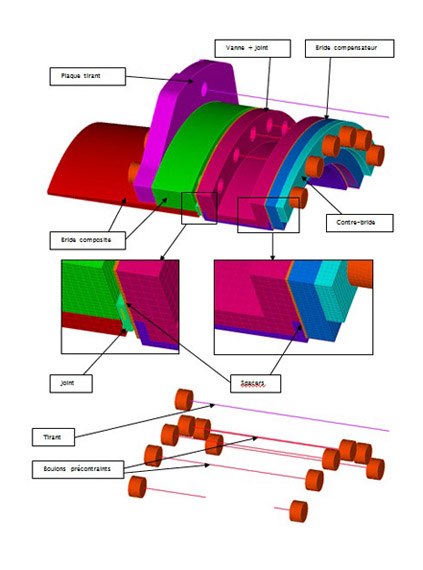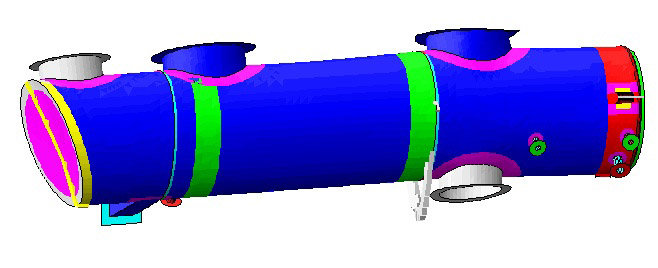Building codes

Simulation of bolting sequences in connection with joint behaviour
We follow the specific building codes for our calculation
The building codes permit to define rules and minimum requirements for the design, the choice of materials, manufacture and control of the products. Thanks to them, the products are standardised all over the countries. Most of the building codes use analytic formulas to find the constraint by calculation (Design by Analysis).
We have to respect the requirements of the materials, manufacture and assembly, when we design a products using a building code.
The building codes are valuable tools because they establish rules based on experience; they eliminate arbitrary choices and poor design.
Calcul-Meca, Expert-Meca, Conception-Meca and Fluide-Meca have an expert knowledge of codes :
Building work
CM 66 Regulations, DTU, CSTB manuals, technical advice or European Technical Approval.
Structural Eurocodes :
- Eurocode 0: Basis of structural design (EN 1990)
- Eurocode 1: Actions on structures (EN 1991)
- Eurocode 2: Design of concrete structures (EN 1992)
- Eurocode 3: Design of steel structures (EN 1993)
- Eurocode 4: Design of composite steel and concrete structures (EN 1994)
- Eurocode 5: Design of timber structures (EN 1995)
- Eurocode 8: Design of structures for earthquake resistance (EN 1998)
- Eurocode 9: Design of aluminium structures (EN 1999)
- NF EN 1090: Execution of steel and aluminium structures
International Building Code IBC
ECCS Recommendations
Glasswork: DTU39, CPT VEA 3574, CPT VEC 3488, CPT 3448
Documents from regulatory bodies
Lloyd’s Register / Germanisher Lloyd’s / Bureau Veritas / DNV / ABS
Builders’ documents (Aeronautics, Automobile and Railway)
Lifting – Maintenance – Public Works
FEM Regulations / PrEN 15011 / CETMEF Recommendations
Boilerwork – Storage tanks and cisterns – Capacities and pipes
CODAP / CODRES / CODETI / EN 13445 / EN 13480 / ASME / RCCM
Boilerwork and composite pipes
NFT57-900 / EN 13121 / ASME section X / ISO 14692
Transmission Pipelines - Pressure Equipment
API / ASME / GESIP Interprofessional Guide
Photo 4: 1.4.2 Dimensioning of composite tank for earthquakes

Dimensioning of composite tank in case of earthquakes
Lack of knowledge of building codes in particular area can be prejudicial to new solutions because of prohibitive safety coefficients. A mastery of building codes and Regulatory Documents enables to justify new products and innovative concepts.

